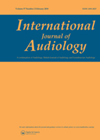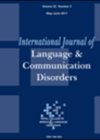
Journal Reviews
Training people with Parkinson’s disease and their partners to have better conversations
Parkinson’s disease is predominantly considered a motor disorder, impacting speech, particularly voice volume, amongst other physical functions. Language and cognitive difficulties, such as difficulties in word finding and social pragmatics are also a key feature of Parkinson’s disease. Given the...
Is it really working? Assessment versus real-life language measures
Research in the field of language treatment and rehabilitation to date has used single-word naming as a controlled measure of outcome. Yet, given people do not actually communicate in single words, there is much debate as to whether this approach...
Quick and valid: a new measure of aphasia
Aphasia can be caused by a stroke, brain injury or dementia. It is defined as a language disorder that impacts the domains of speaking, understanding, reading and writing. Given the impact on quality of life and conversation, there is a...
Does talking better make you feel better?
Interaction-focused therapy for people with language impairment (aphasia) following a stroke or brain injury is routinely used by speech and language therapists in clinical practice. These types of interventions are based on research into the organisation of interactions and interactional...
How to talk about hearing aid costs?
Money is always a controversial topic if discussed in reference to healthcare. This study raises the interesting topic of difficulties when it comes to discussing the costs of hearing aids with customers. Sixty-two audiological appointments were recorded and discussions concerning...
Importance of face-to-face communication in clinical practice
Breakdowns in communication with patients who have difficulty in understanding, speaking or hearing may occur during a consultation. The authors of this paper studied the hearing-related breakdowns in communication especially amongst older adults with hearing impairment (HI) using conversational analysis...








